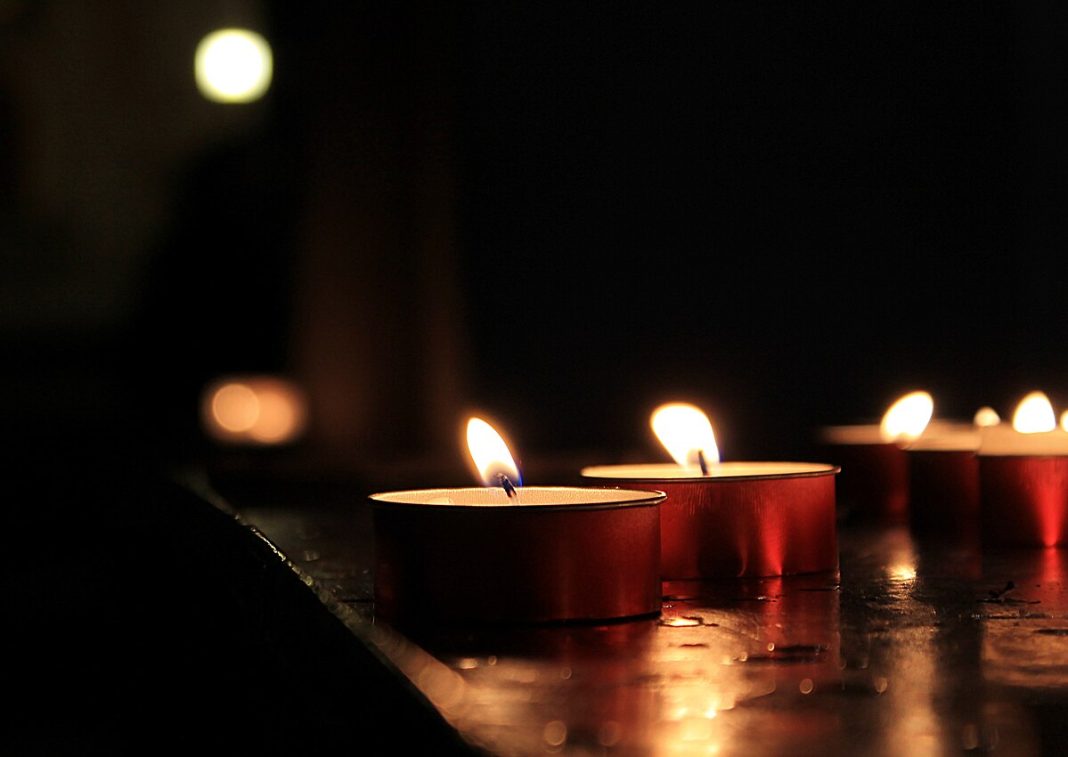Like Harry Potter under the stairs, I was ‘the one who lived’. A rainbow baby (a baby born after loss), wrapped in nappies and layers of meaning and expectation. Unlike Harry, I didn’t get a letter from Hogwarts. I got a Netflix password made from my dead brother’s birthday.
There were four of them. Four boys who did not make it. My parents carried that grief like a second skin. Loss became part of the family’s familiar, brutal, ritualised rhythm. Every year on 6th December, they would go to Westminster Cathedral and light a candle for Gerrard. He was the one they thought would survive. He was named after Steven Gerrard – nominative determinism was alive and well in the hearts of die-hard Liverpool dads. I didn’t just arrive as a child blinking into the light. I arrived as a symbol.
This came with certain privileges – unrelenting love, slightly excessive birthday fanfare, and a sense that I was living not just for myself but for four others. But it also carried a heavy psychic weight. My existence was stitched together with joy and grief, miracle and mourning. Try putting that on your UCAS application.
Even as a toddler, I knew I was being watched with the anxiety of someone who had been burned before. I was swaddled in care, yes, but also in fear. My mum, who had already endured too many obstetric failures, was failed again by a healthcare system that couldn’t give her answers or the dignity she deserved. I saw the old footage of my birth. I know what she went through. Many women still go through it, often quietly and invisibly. Some things, it seems, like underfunded NHS wards, are as British as bad weather.
So I grew up under this strange emotional weather system: the sun of survival with the ever-present cloud of what had come before me. I tried to include my brothers in conversations. “Do you have any siblings?” people would ask. “Yes”, I’d say brightly, “Four. But they’re all dead.” That tends to kill the vibe at a freshers’ brunch. People fumble, awkwardly polite. Those close to grief never quite know where to look. By the time I got to my second term at university, I’d stopped mentioning them. Not because I cared less, but because in this hothouse of ambition and performative nonchalance, there didn’t seem to be room for vulnerability. I didn’t want to be reduced to a walking metaphor for grief. I wanted to be clever, witty, mysterious. Just me, not ‘the girl who lived’.
But the past is never past. It lives in repetition, rituals, and deep grooves of fear that shape your sense of self. My mother’s anxiety became part of my emotional DNA. Her loss filtered into my worldview before I could even name it. The grief she tried to hide still spoke to me in silence. That’s the thing with trauma: it communicates itself even when no one articulates it.
This pressure isn’t mine alone. Every rainbow baby I’ve spoken to over coffee or in tipsy late-night heart-to-hearts has felt it. Each carries a strange, quiet weight, a need to prove that survival wasn’t meaningless. Some of us overachieve, trying to be ‘worth it’. Some self-sabotage, because how could we ever be ‘enough’? Either way, the weight remains.
Carrie Symonds once wrote honestly about miscarriage and the complex joy of having a rainbow baby. She described how grief and happiness coexist in ways brutal to explain, and how pain can be a quiet shadow beneath every smile. In a world where women’s pain is often minimised or weaponised, saying “this hurt” is an act of rebellion. Her words made me feel seen not only as someone longed for, but as someone born from both love and loss.
And it’s not just about babies. It’s about all of us asked, silently or explicitly, to carry the legacies of those who couldn’t finish the race. The first-gen student who was told to “make the most” of the sacrifice. The refugee child whose parents risked everything. The younger sibling of someone who took their own life. We are everywhere: grateful, guilty, quietly exhausted.
But maybe we don’t have to be symbols. Maybe we don’t have to walk redemption arcs. Maybe we can just be people, messy, flawed, and imperfect at football despite being named after Steven Gerrard (sorry, Dad). It may be enough to merely live.
Still, I light the candle. I remember the names. I carry the stories, not because I have to, but because I want to. Sometimes, in the flicker of that flame, I see the truth: love and loss are just two sides of the same coin. Somehow, we are all the girls or boys who lived.


